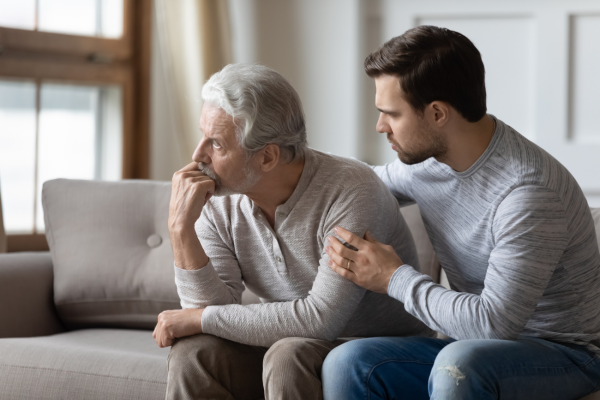 Elder abuse is a serious problem that occurs in skilled nursing facilities, as well as inside and outside of the home. It is often committed by professional caregivers, con artists, and sometimes even family members. Tampa elder law attorneys want to make seniors and their families aware of the signs of elder abuse and to know what to do if elder abuse is suspected.
Elder abuse is a serious problem that occurs in skilled nursing facilities, as well as inside and outside of the home. It is often committed by professional caregivers, con artists, and sometimes even family members. Tampa elder law attorneys want to make seniors and their families aware of the signs of elder abuse and to know what to do if elder abuse is suspected.
How to recognize physical abuse and neglect
Physical abuse and neglect are two forms of physical elder abuse. Many seniors who are confined to a home or skilled nursing facility need constant attention from caregivers, and if that care is neglected, it can lead to disastrous and tragic results. Loved ones should check in often and look for signs of unsanitary living conditions, issues with personal hygiene and nutrition, and untreated medical problems that cause the senior chronic pain. One key warning sign is when a caregiver refuses to let a loved one have private visitations with the senior or refuses to let the senior talk on the phone.
How to recognize emotional abuse
Emotional abuse is often tied to physical abuse, so it’s important to look for the issues listed above as well as recognizing angry, threatening, or controlling issues from caregivers. Loved ones should also track any changes in the mental state of the senior, such as dementia, and have a physician assess the senior’s mental state if emotional abuse is suspected. Emotional abuse can be just as devastating to the health and welfare of a senior and needs to be addressed immediately, even if the warning signs are harder to spot than physical abuse and neglect.
How to recognize financial abuse
Financial abuse is the most common – and hardest to recognize – form of elder abuse. Financial abuse occurs in skilled nursing facilities, at home, or over the phone. Many people are familiar with credit card scams that swindle seniors out of their life savings, but new scam tactics are being developed every day. Studies show that seniors are much more susceptible to these scams than members of other age groups. Loved ones should be on the lookout for changes in beneficiary documents, unpaid bills, items missing from the senior’s home or room at a skilled nursing facility, and withdrawals from financial accounts.
If you suspect that an elder is being abused, please inform a family member, doctor, or lawyer and contact your local Adult Protective Services department. Please remember that seniors are not always able to advocate for their own care, and the responsibility falls to loved ones to make sure they receive the care and dignity they deserve.
If you have additional questions about how to prevent elder abuse, or you would like to discuss creating legal documents that would give you control over an elderly loved one’s affairs to ultimately protect him or her from people with bad intentions, please contact our Tampa elder law attorneys at (813) 438-8503 to set up a consultation.
